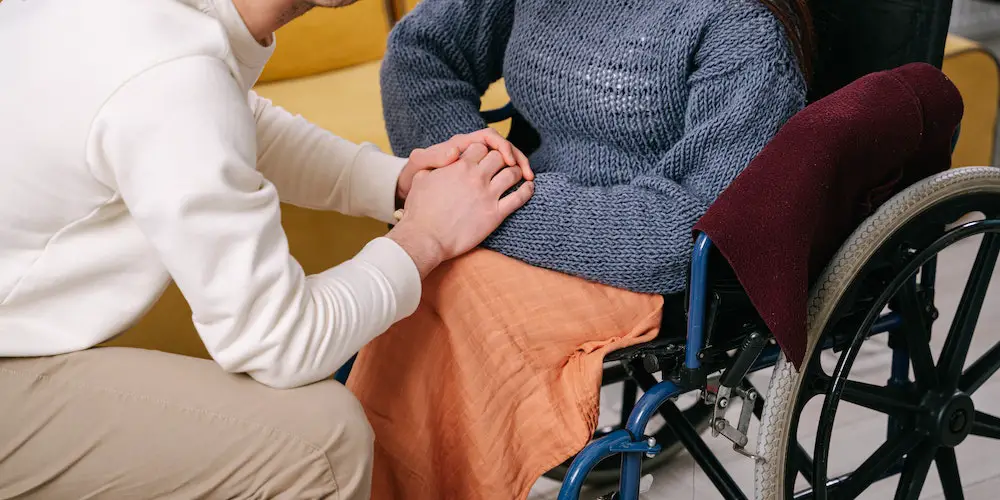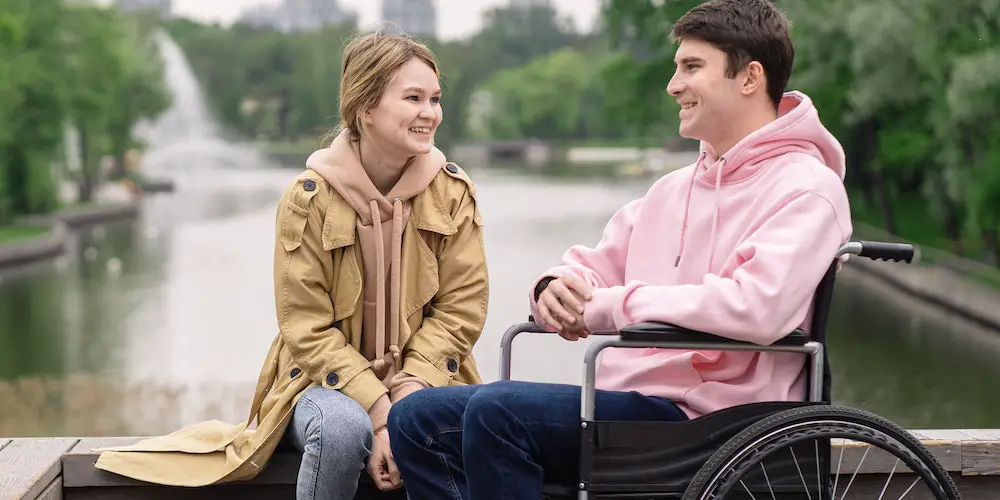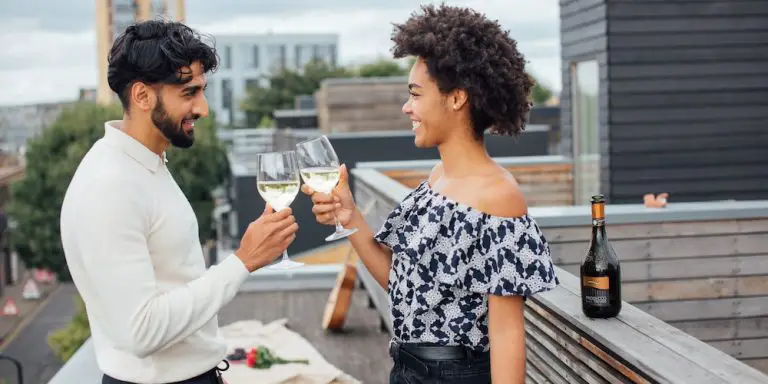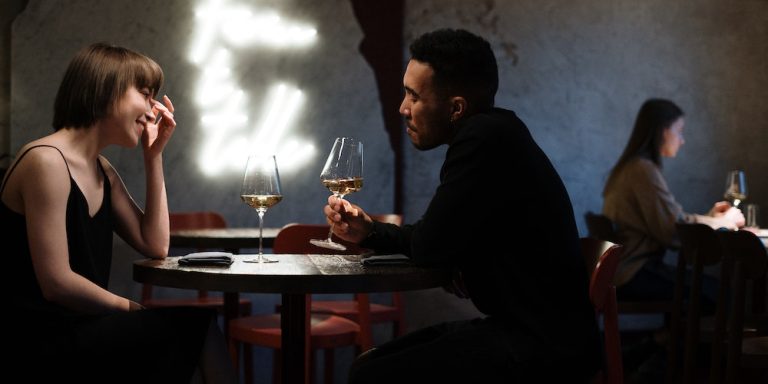
Do you want to learn about how dating with disabilities work? If your answer to this question is yes, then this article is for you.
Introduction
Dating can be a challenging and exhilarating experience for anyone. However, when it comes to dating with disabilities, additional obstacles and unique considerations arise. In
this article, we will explore the topic of dating with disabilities, focusing on how individuals can overcome challenges and embrace empathy in their pursuit of love and companionship.
Understanding Dating with Disabilities

Dating with disabilities involves navigating physical, emotional, and societal barriers that can make the process more complex.
It requires a deep understanding of oneself, empathy for others, and a willingness to overcome obstacles.
By fostering a culture of inclusivity and empathy, we can create a dating landscape that values and supports individuals with disabilities.
Dating with disabilities extends beyond the realm of romantic relationships. It also involves navigating everyday life with empathy and understanding.
Let’s explore some practical tips for embracing empathy in daily interactions.
1. Educate Yourself
Take the initiative to educate yourself about different disabilities and the challenges individuals may face.
Read books, articles, and personal stories that shed light on various disabilities.
By gaining knowledge, you can break down stereotypes, and misconceptions, and foster empathy in your interactions.
2. Use Inclusive Language
Language plays a significant role in promoting empathy. Use person-first language, such as “person with a disability” instead of “disabled person.”
Focus on the individual and their abilities rather than defining them solely by their disability.
By using inclusive language, you show respect and acknowledge their individuality.
3. Practice Active Listening
When engaging in conversations with individuals with disabilities, practice active listening. Give them your full attention, maintain eye contact, and show genuine interest in what they have to say.
By actively listening, you create a safe space for them to express themselves and feel heard.
4. Offer Assistance Respectfully
If you encounter someone with a disability who appears to need assistance, approach them respectfully.
Instead of assuming they require help, ask if they would like assistance. Respect their autonomy and let them guide you on how you can offer support.
Remember, everyone’s needs and preferences may differ.
5. Be Mindful of Physical and Emotional Boundaries
Respecting boundaries is crucial in fostering empathy. Be mindful of personal space and avoid making assumptions about an individual’s comfort levels.
Understand that individuals with disabilities have agency and autonomy over their bodies and emotions. Always seek consent and communicate openly to ensure mutual respect.
6. Challenge Stereotypes and Advocate for Inclusivity
Take a proactive approach to challenging stereotypes and advocating for inclusivity in your community.
Educate others about the importance of embracing diversity and creating accessible spaces.
Encourage businesses, organizations, and public spaces to implement accommodations that promote inclusivity for individuals with disabilities.
The Importance of Empathy in Dating with Disabilities
Empathy plays a crucial role in dating with disabilities. It allows individuals to connect on a deeper level, understand each other’s experiences, and appreciate the unique challenges they face.
By cultivating empathy, both partners can build a strong foundation of understanding and support, fostering a healthy and fulfilling relationship.
Overcoming Physical Barriers in Dating with Disabilities
Embracing Adaptive Technology
Adaptive technology has revolutionized the lives of people with disabilities, offering new possibilities in the realm of dating.
From specialized dating apps to assistive devices, technology provides avenues for individuals to connect, communicate, and explore potential relationships.
Embracing these advancements can help overcome physical barriers and enhance the dating experience.
Accessible Date Locations
When planning dates, it’s important to consider accessibility. Choosing venues that are wheelchair-friendly, have proper accommodations, and cater to diverse needs ensures inclusivity and equal opportunities for enjoyment.
By actively seeking out accessible locations, both partners can feel comfortable and at ease during their time together.
Nurturing Emotional Well-being in Dating with Disabilities
Building Self-Confidence
Self-confidence is key in any dating journey, including dating with disabilities. It involves recognizing and appreciating one’s own worth, focusing on strengths, and embracing individuality.
Building self-confidence empowers individuals to approach dating with a positive mindset and a sense of self-assurance.
Open and Honest Communication
Effective communication is fundamental to successful relationships. When dating with disabilities, open and honest communication becomes even more critical.
It allows individuals to express their needs, desires, and concerns, fostering understanding and mutual respect.
By prioritizing clear communication, potential barriers can be addressed proactively, enhancing the dating experience.
Societal Challenges and Breaking Stereotypes
Promoting Inclusivity and Education
Societal attitudes and misconceptions about disabilities can create significant barriers in the dating world.
It is essential to promote inclusivity and educate society about the diverse experiences of individuals with disabilities.
By challenging stereotypes and fostering empathy, we can create a more accepting and understanding society that supports everyone’s right to love and companionship.
Advocacy and Support
Advocacy plays a crucial role in overcoming societal challenges in dating with disabilities.
Supporting organizations and initiatives that aim to create inclusive spaces and promote equal opportunities can make a significant impact.
By actively participating in advocacy efforts, individuals can contribute to a more inclusive and empathetic dating culture.
Conclusion
Dating with disabilities requires a compassionate and understanding mindset. By actively embracing empathy, challenging societal barriers, and fostering inclusivity, we can create a dating landscape that celebrates the uniqueness of individuals with disabilities. Remember, love knows no boundaries, and everyone deserves the opportunity to experience meaningful connections and relationships. Let’s work together to overcome challenges and create a more empathetic and inclusive society.
Frequently Asked Questions
Q1: How can I approach someone with a disability for a date?
Approaching someone with a disability for a date requires sensitivity and respect. Treat them as you would any other person, showing genuine interest in getting to know them. Be mindful of their needs and boundaries, and ask open-ended questions to foster meaningful conversation.
Q2: What should I do if I encounter accessibility challenges during a date?
If you encounter accessibility challenges during a date, remain calm and supportive. Together with your partner, explore alternative options or adapt the plan to ensure inclusivity. The key is to communicate openly, find solutions collaboratively, and prioritize the comfort and enjoyment of both individuals.
Q3: How can I build empathy when dating someone with a disability?
Building empathy requires active listening, open-mindedness, and a willingness to learn from your partner’s experiences. Take the time to understand their unique challenges and perspectives. Engage in conversations that foster empathy and ask questions with genuine curiosity.
Q4: What are some resources available for dating with disabilities?
There are several resources available for dating with disabilities. Specialized dating websites and apps cater specifically to individuals with disabilities, providing a platform to connect and build relationships. Additionally, support groups, community organizations, and counseling services offer valuable guidance and support.
Q5: How can I overcome self-doubt when dating with a disability?
Overcoming self-doubt is a personal journey that involves self-reflection and self-acceptance. Focus on your strengths, celebrate your accomplishments, and surround yourself with a supportive network. Engage in self-care activities that boost your confidence and remind yourself of your worth.
Q6: Is it possible to find love and have a fulfilling relationship when dating with a disability?
Absolutely! Love knows no boundaries. With the right mindset, open communication, and a commitment to empathy, individuals with disabilities can find love and experience fulfilling relationships. It may require patience and perseverance, but the rewards of finding a compatible partner who understands and supports you are immeasurable.



